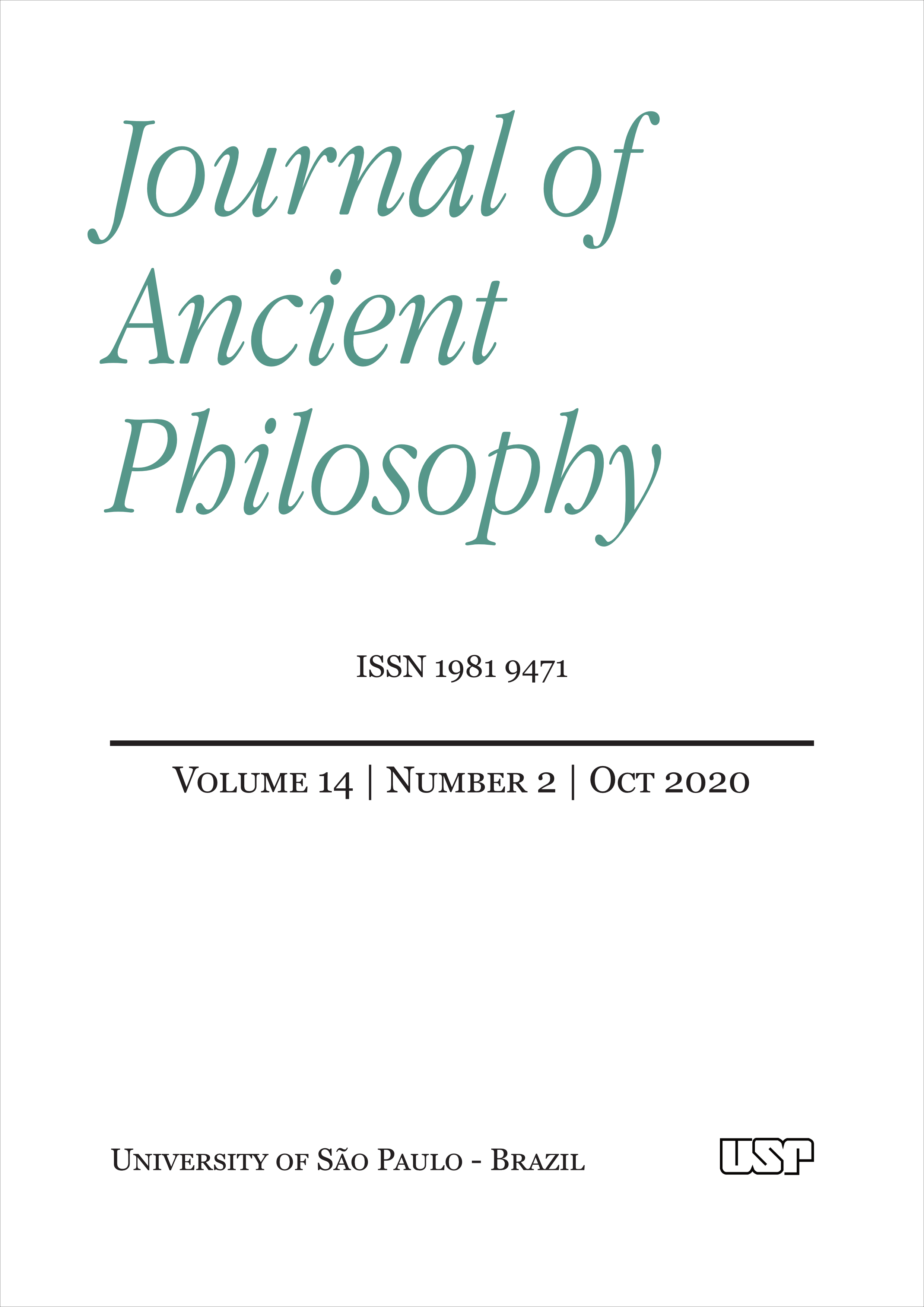The Divine Charioteering Model - A Guide to Moderation
DOI:
https://doi.org/10.11606/issn.1981-9471.v14i2p203-209Keywords:
charioteering, Homer , metaphor, ancient literatureAbstract
Charioteering as a metaphor for correct and balanced thinking has been written about since Homer. The Iliad presents the divine charioteering model as exemplified by Hera and Athena and examines how the fate of mortal charioteers including Antilokhos, Patroklos and Achilles is determined based on their ability to adhere to this model. Authors as diverse as Plato, Proclus, Pindar and Euripides build upon the divine charioteering model as they show examples of charioteers who, in varying degrees, follow this model. This paper will demonstrate that heroes who veer from the model of equilibrium and moderation provided by the gods, violate justice [dikē] with their hubris and incur agony [agōn] from the divinity they antagonize.
Downloads
References
Nagy, G., 2019. Sourcebook of Ancient Greek Texts in English Translation. [Online] Available at: http://nrs.harvard.edu/urn-3:hul.ebook:CHS_NagyG_ed.Sourcebook_H24H.2013-[Accessed 8 December 2019].
Pindar, n.d. Pythian 6. [Online] Available at: http://www.perseus.tufts.edu/hopper/text?doc=urn:cts: greekLit:tlg0033.tlg002.perseus-eng1:6 [Accessed 8 December 2019]. Plato, n.d. Plato's Phaedrus. [Online]
Available at: http://caae.phil.cmu.edu/Cavalier/80250/Plato/Phaedrus/Phaedrus.html [Accessed 8 December 2019].
Downloads
Published
Issue
Section
License

This work is licensed under a Creative Commons Attribution 4.0 International License.
Copyright
Authors who publish with this journal agree to the following terms:
- Authors retain copyright and grant the journal right of first publication with the work simultaneously licensed under a Creative Commons Attribution License (CC By 4.0) that allows others to share the work with an acknowledgement of the work's authorship and initial publication in this journal.
- Authors are able to enter into separate, additional contractual arrangements for the non-exclusive distribution of the journal's published version of the work (e.g., post it to an institutional repository or publish it in a book), with an acknowledgement of its initial publication in this journal.
- Authors are permitted and encouraged to post their work online (e.g., in institutional repositories or on their website) prior to and during the submission process, as it can lead to productive exchanges, as well as earlier and greater citation of published work (See The Effect of Open Access).


